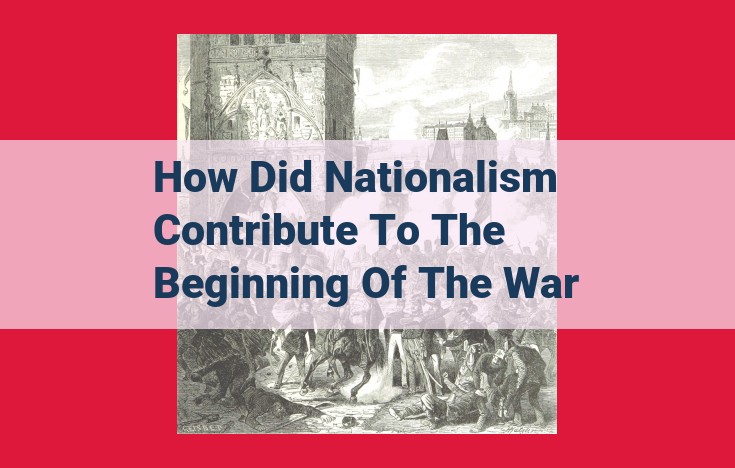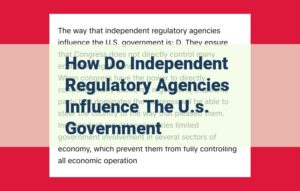Nationalism fueled rivalries between European powers, leading to the formation of antagonistic alliances. Pan-Germanism’s expansionist ambitions stoked tensions with neighboring nations. The quest for colonies and resources created economic competition and imperial conflicts. These factors contributed significantly to the escalating tensions and diplomatic failures that culminated in the outbreak of World War I.
Primary Entities: The Major Players on the World Stage
Austria-Hungary: The crumbling Habsburg Empire, a patchwork of diverse ethnicities, grappled with rising nationalist sentiments and territorial disputes. Its aging Emperor, Franz Joseph I, sought to maintain the empire’s crumbling facade.
France: Reeling from its defeat in the Franco-Prussian War, France yearned to reclaim its lost territories and rebuild its military might. President Raymond Poincaré led the charge, determined to restore French glory.
Germany: United under the iron fist of Kaiser Wilhelm II, Germany emerged as a formidable industrial and military power. Pan-Germanism, a fervent nationalist ideology, fueled imperial ambitions and strained relations with its neighbors.
Great Britain: The “workshop of the world,” Great Britain possessed a vast empire and the world’s strongest navy. Prime Minister Herbert Asquith steered the country through a delicate balancing act, maintaining relationships with both Germany and France.
Russia: The colossal Russian Empire, ruled by Tsar Nicholas II, struggled to modernize and quell internal unrest. Its vast territories and strategic interests brought it into conflict with Austria-Hungary and Germany.
Pan-Germanism: The Spark That Ignited the European Firestorm
Amidst the complex tapestry of factors that led to the outbreak of World War I, one thread stands out as particularly potent: nationalism. And at its core, the rising tide of Pan-Germanism played a pivotal role in shaping the diplomatic landscape and exacerbating tensions among European powers.
Pan-Germanism: A Surge of National Pride
Pan-Germanism was a powerful ideology that emerged in the late 19th century. It espoused the unification of all German-speaking peoples into a single, mighty German nation. This sentiment found fertile ground in a rapidly industrializing Germany, eager to assert its place among the European elite.
Impact on Diplomatic Relations
The Pan-German movement had a profound impact on Germany’s foreign policy. It fueled ambitious expansionist aims, particularly in Eastern Europe. The German Empire sought to expand its territory, incorporating German-speaking areas of Austria-Hungary and Russia.
This expansionism clashed with the interests of these nations, particularly Russia, whose own sphere of influence in the Balkans was threatened. The rivalry between Germany and Russia became increasingly acrimonious, setting the stage for future conflict.
Isolation of Germany
Germany’s Pan-Germanist ambitions also contributed to its isolation on the international stage. France, a long-time adversary, saw Germany’s expansionist intentions as a threat to its own security. Great Britain, wary of a rising German power, increasingly aligned with France and Russia, forming the Triple Entente.
Thus, Germany found itself diplomatically isolated, surrounded by potential enemies. The intense nationalist fervor within Germany and the fear and suspicion it generated among its neighbors created a powder keg that was ready to explode.
The Key Political Players in the Prelude to World War I
In the intricate tapestry of events leading up to the outbreak of World War I, a cast of prominent political figures played pivotal roles in shaping the course of history. Emperor Wilhelm II of Germany, with his towering military ambitions and unwavering belief in German supremacy, emerged as a central figure. Franz Joseph I of Austria-Hungary, a stoic monarch burdened by the weight of a crumbling empire, found himself at the vortex of diplomatic crises. And Tsar Nicholas II of Russia, a deeply religious leader struggling to modernize his vast country, faced mounting internal challenges and an uncertain foreign policy.
Wilhelm II, known as the “Warrior Emperor,” ascended to the German throne in 1888. His reign was marked by a fervent drive to expand Germany’s global influence and military might. Wilhelm’s bellicose rhetoric and aggressive foreign policy alienated many European powers, creating a climate of mistrust and suspicion. His unwavering support for Austria-Hungary’s expansionist ambitions in the Balkans further heightened tensions.
Franz Joseph I, ruling over a multi-ethnic empire on the brink of collapse, found himself in a precarious position. Determined to preserve the Habsburg monarchy, Franz Joseph pursued an aggressive foreign policy in the Balkans, seeking to consolidate Austria-Hungary’s influence in the region. However, his actions only served to inflame nationalist aspirations and deepen ethnic divisions within his own empire.
Tsar Nicholas II, a deeply conservative ruler, inherited a vast and volatile Russian empire in 1894. Faced with growing social unrest and a rapidly modernizing Europe, Nicholas struggled to maintain stability and secure Russia’s place as a major power. His indecisive foreign policy, alternating between diplomatic isolation and desperate alliances, ultimately failed to prevent Russia from being drawn into a catastrophic war.
These three monarchs, with their contrasting personalities and ambitions, played a crucial role in the fateful chain of events that led to the outbreak of World War I. Their decisions and actions shaped the course of history, leaving a lasting legacy of conflict and tragedy.
International Alliances and Rivalries: The Prelude to War
In the intricate tapestry of pre-World War I Europe, complex alliances and rivalries played a pivotal role in shaping the course of events.
At the heart of these diplomatic machinations lay the Triple Alliance, an alliance forged between Germany, Austria-Hungary, and Italy in 1882. This alliance aimed to maintain the status quo in Europe and prevent France from seeking revenge for its defeat in the Franco-Prussian War.
As the Triple Alliance gained strength, a countervailing alliance emerged: the Triple Entente. In 1907, Britain, France, and Russia joined forces to balance the power of the Triple Alliance. This alliance sought to contain German expansion and protect British interests in Europe.
The Triple Alliance and Triple Entente created a system of competing alliances that increased tensions and made it more difficult to resolve diplomatic disputes. As nations aligned themselves with one alliance or the other, they became more likely to support their allies in the event of a conflict.
These alliances had a profound impact on European power dynamics. They created an atmosphere of suspicion and mistrust, as each nation feared that its rivals were plotting against it. The alliances also made it more difficult for nations to negotiate peacefully, as they were bound by obligations to their allies.
As tensions mounted in Europe, the alliances played a major role in the outbreak of World War I. When Austria-Hungary declared war on Serbia in 1914, Germany and Russia, as members of the Triple Alliance and Triple Entente respectively, were drawn into the conflict. Soon after, the other major powers joined the war, and Europe was plunged into the bloodiest conflict it had ever seen.
Economic Imperialism and Colonial Expansion: A Catalyst for Conflict
The Race for Colonies
As the Industrial Revolution unfolded, European powers embarked on a ruthless quest for resources and markets, fueling a global scramble for colonies. Economic imperialism became the driving force behind this expansionist frenzy, with nations vying for control of vast territories rich in raw materials, such as rubber, oil, and gold.
Imperialism in Africa and Asia
The partition of Africa and Asia was a brutal process, characterized by military conquests and exploitation. European powers imposed their rule on indigenous populations, often committing atrocities and displacing local communities. Imperialism had a profound impact on the social, economic, and cultural fabric of colonized regions, creating resentment and stoking tensions between European nations.
The Clash of Interests
The rivalry for colonies exacerbated international tensions. The acquisition of overseas territories was seen as a measure of national power and prestige, with each European power striving to outdo its rivals. The scramble for Africa and Asia became a breeding ground for conflict, as nations competed for control of strategic waterways, resources, and markets.
The Impact on World War I
The legacy of economic imperialism and colonial expansion contributed to the outbreak of World War I. The grievances and resentments accumulated by colonized peoples, coupled with the intensifying competition among European powers, created a volatile international environment. The assassination of Archduke Franz Ferdinand, the heir to the Austro-Hungarian throne, in Sarajevo, Bosnia, on June 28, 1914, sparked a diplomatic crisis that escalated into a full-blown war.
Military Buildups and the Arms Race
As Europe marched towards the precipice of war, the thunderous roar of military buildups reverberated across the continent. Driven by a relentless pursuit of technological superiority, nations engaged in an unprecedented arms race that transformed the face of warfare.
Technological Advancements: The Dawn of Modern Warfare
The industrial revolution had unleashed a torrent of transformative technologies. Steam-powered ships carried armies across oceans, breech-loading rifles fired deadly rounds, and artillery pieces rained down destruction from afar. The telegraph, a marvel of communication, allowed generals to coordinate their forces in real-time. The very nature of warfare was undergoing a profound transformation.
The Arms Race: Escalation and Paranoia
Fear, suspicion, and a thirst for power gripped European nations. Massive sums were poured into military spending, as each country sought to outmaneuver its rivals. The Triple Alliance (Germany, Austria-Hungary, and Italy) and the Triple Entente (France, Russia, and Great Britain) engaged in a frenzied competition to build up their armies, navies, and arsenals. It was a vicious cycle, each nation’s preparations fueling the fears of its adversaries and deepening the divide.
The arms race became a self-perpetuating beast, consuming resources that could have been used for economic development or social welfare. It fostered a climate of mistrust and paranoia, where every diplomatic incident or military maneuver was seen as a potential threat.
The Seeds of Catastrophe
The technological advancements and the arms race created a powder keg waiting to explode. The rapid pace of innovation made it impossible for any nation to gain a permanent advantage, fostering a sense of uncertainty and instability. In the end, it was this relentless pursuit of military superiority that would set the stage for the horrors of World War I. The continent had become a tinderbox, and a single spark would ignite a global conflagration that would forever change the course of human history.
Diplomatic Crises and Failed Negotiations
The Balkans, a region of southeastern Europe, was a hotbed of political unrest in the early 20th century. Nationalist movements and conflicting ethnic identities ignited a series of diplomatic crises that ultimately set the stage for World War I.
The Balkan Powder Keg
- 1908: Austria-Hungary annexed Bosnia and Herzegovina, provinces of the collapsing Ottoman Empire. This sparked outrage in Serbia, which considered these territories as part of its national aspirations.
- 1912-1913: The Balkan Wars pitted Serbia, Bulgaria, Montenegro, and Greece against the Ottoman Empire, resulting in further redrawing of borders in the region.
- Instability and resentment: These conflicts left the Balkans politically and ethnically fragmented, creating a volatile atmosphere ripe for further conflict.
The Assassination of Archduke Franz Ferdinand
- June 28, 1914: Archduke Franz Ferdinand, heir to the Austro-Hungarian throne, was assassinated in Sarajevo, the capital of Bosnia and Herzegovina.
- Gavrilo Princip, a Serbian nationalist, fired the fatal shots.
- Austria-Hungary: Blamed Serbia for the assassination and demanded an apology and punishment of those responsible.
- Serbia: Refused to accept all of Austria-Hungary’s demands, perceiving them as an attack on its sovereignty.
Failed Negotiations
- July 23, 1914: Austria-Hungary issued an ultimatum to Serbia, giving it 48 hours to comply with its demands.
- July 25, 1914: Serbia partially accepted the ultimatum but refused to allow Austrian officials to investigate the assassination within its territory.
- July 28, 1914: Austria-Hungary declared war on Serbia, igniting a chain reaction of alliances that led to the outbreak of World War I.
The diplomatic crises in the Balkans and the failed negotiations between Austria-Hungary and Serbia were the culmination of years of simmering tensions and nationalist aspirations. The assassination of Archduke Franz Ferdinand served as the spark that ignited the powder keg, leading to the outbreak of the deadliest conflict the world had ever seen.
The Prelude to World War I: The Gearing Up
The outbreak of World War I in 1914 was a cataclysmic event that reshaped the world. The conflict had been brewing for many years, as a complex interplay of national rivalries, political alliances, and economic and military developments fueled tensions across Europe.
The Outbreak of War
The immediate trigger for the war was Austria-Hungary’s ultimatum to Serbia in July 1914. Tensions had been escalating in the Balkans, where Serbia’s growing power and independence were seen as a threat by Austria-Hungary. The assassination of Archduke Franz Ferdinand, the heir to the Austrian throne, by a Serbian nationalist ignited a diplomatic crisis.
Austria-Hungary accused Serbia of complicity in the assassination and issued an ultimatum demanding that Serbia accept a series of harsh conditions, including allowing Austrian troops to enter Serbia and suppress anti-Austrian activities. Serbia refused some of the demands, leading Austria-Hungary to declare war on July 28, 1914.
The system of alliances that had been established in Europe meant that the conflict quickly escalated. Russia, Serbia’s ally, mobilized its army in support of Serbia. Germany, Austria-Hungary’s ally, responded by declaring war on Russia on August 1, 1914. France, Russia’s ally, then declared war on Germany on August 3, 1914.
The war quickly spread beyond the Balkans, as Britain, France, and Germany all had colonies or territories in Africa and Asia. By the end of 1914, all of the major European powers were engaged in a global conflict that would eventually involve over 30 countries and claim the lives of millions.




